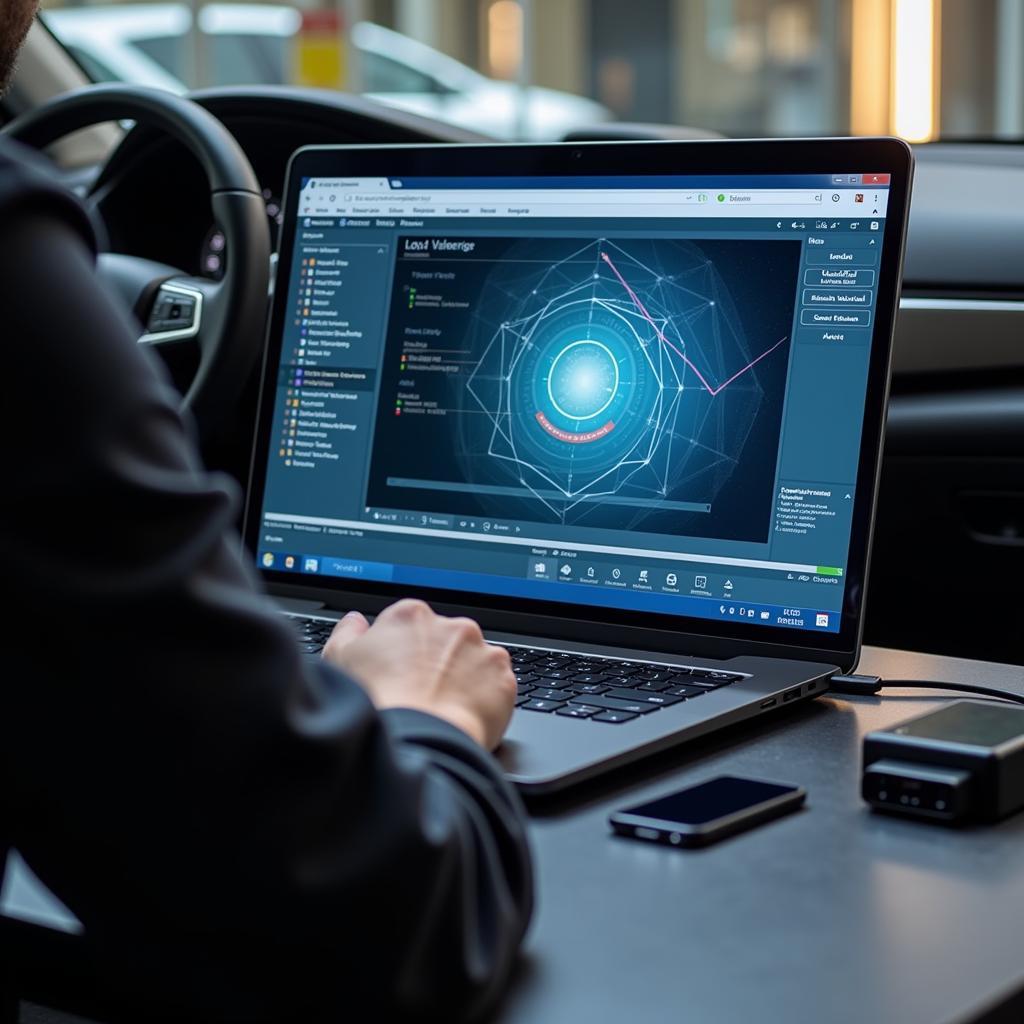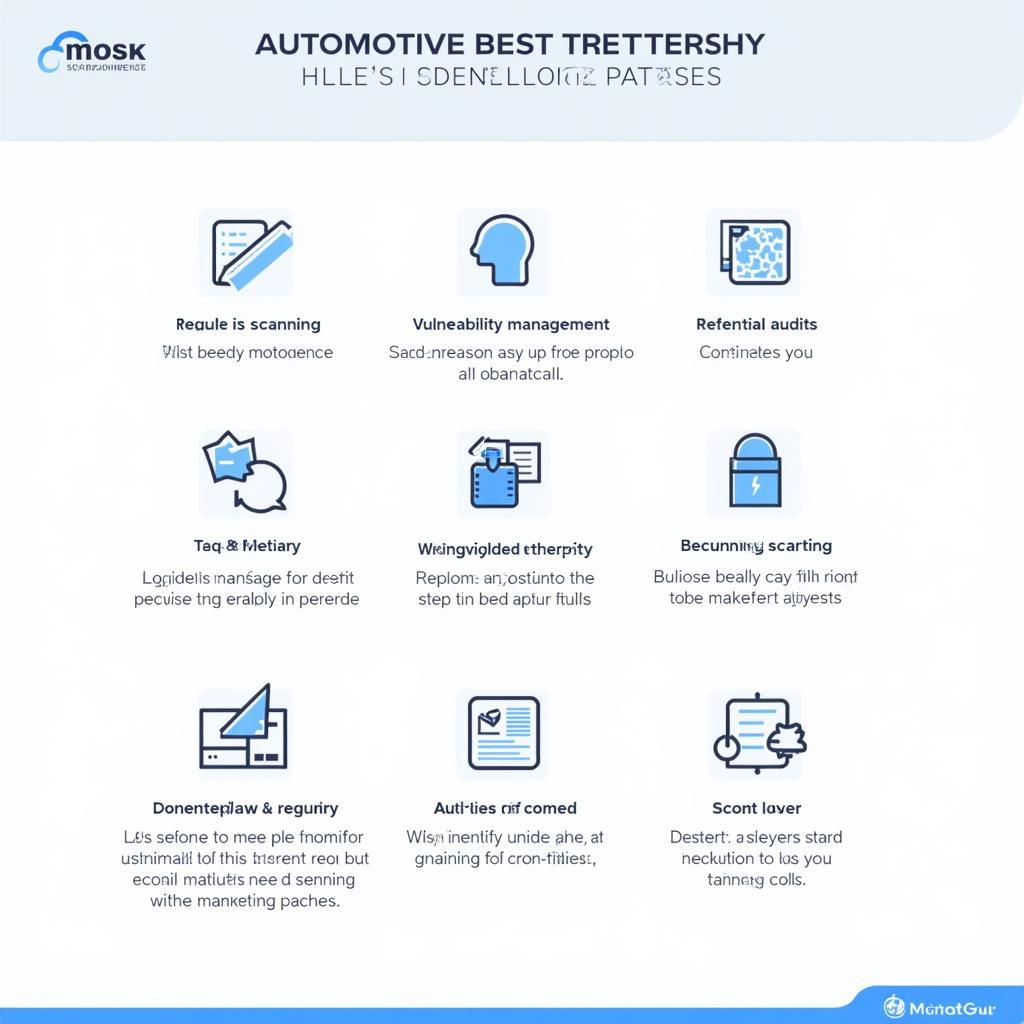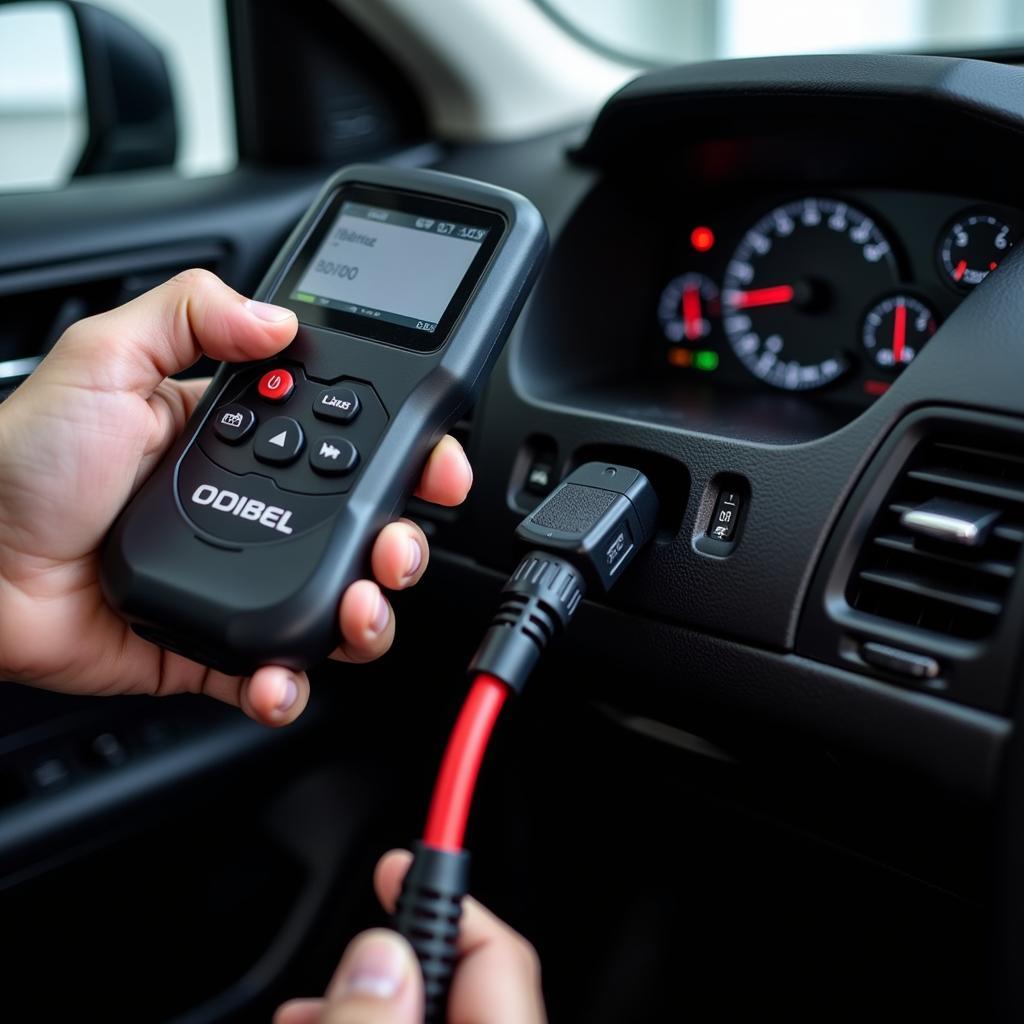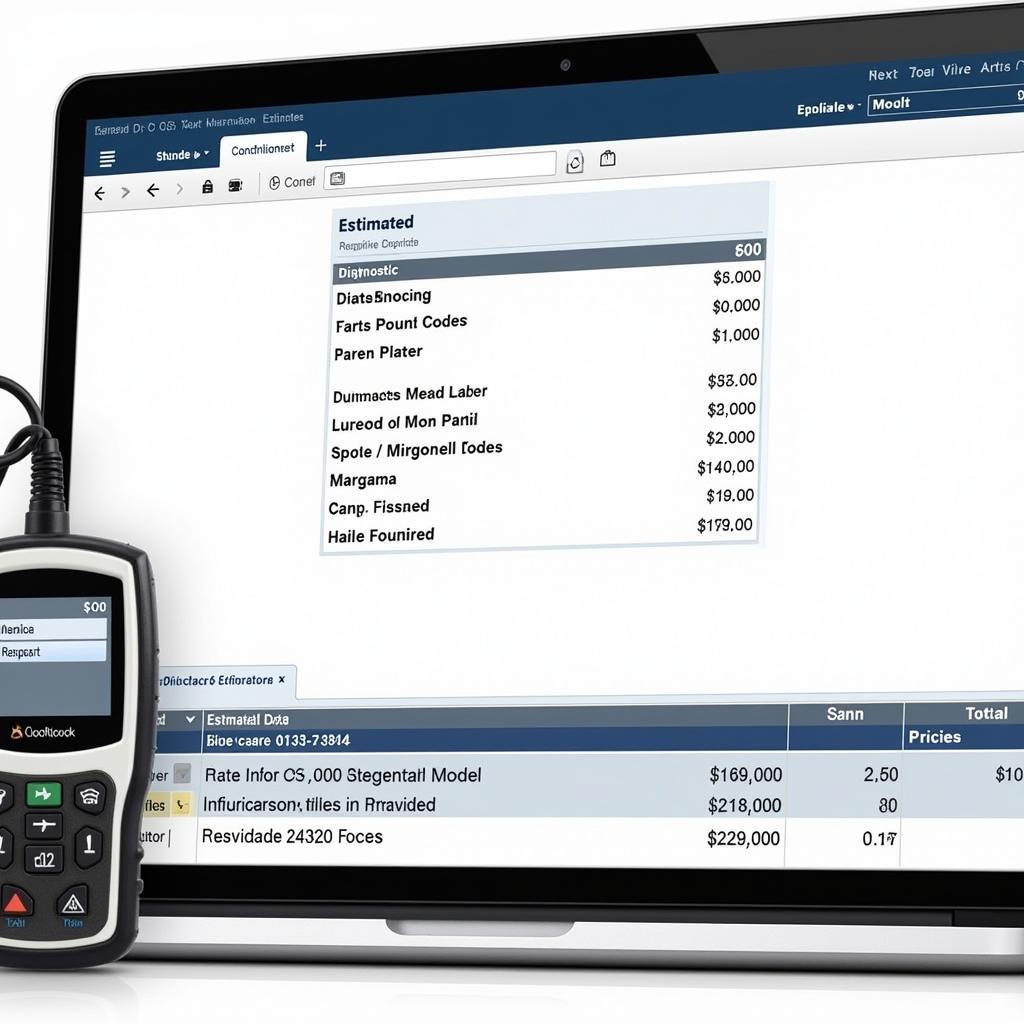Log4j vulnerabilities, especially the infamous Log4Shell (CVE-2021-44228), sent shockwaves through the cybersecurity world. These vulnerabilities allow attackers to execute arbitrary code remotely, potentially compromising entire systems. Understanding how to scan for these vulnerabilities is crucial for protecting your automotive systems, whether you’re a vehicle owner, a repair shop owner, or an automotive technician. This requires the right tools to scan for log4j effectively.
Choosing the correct Tool To Scan For Log4j can be daunting given the numerous options available. The ideal scanner should be efficient, accurate, and provide actionable insights. Factors such as ease of use, compatibility with your systems, and the ability to detect a wide range of Log4j vulnerabilities should all be considered. You can find a comprehensive list of recommended tools at tools to scan for log4j.
How to Choose the Right Tool to Scan for Log4j
Selecting the best log4j scan tool depends on several key factors specific to your automotive environment:
- System Complexity: Modern vehicles are complex networks of interconnected systems. A suitable scanner should navigate this complexity and identify vulnerable Log4j instances across various Electronic Control Units (ECUs).
- Real-time Scanning Capabilities: For continuous monitoring and early threat detection, consider tools that offer real-time scanning capabilities. This is especially critical for connected car services.
- Integration with Existing Infrastructure: The chosen tool should integrate seamlessly with your existing security infrastructure, including firewalls and intrusion detection systems.
- Reporting and Analysis: Clear, concise reporting is essential for effective remediation. Look for tools that provide detailed vulnerability reports, including the severity level and location of each vulnerability.
Why Scanning for Log4j is Critical in the Automotive Industry
The automotive industry is increasingly reliant on software and connected technologies. This increasing complexity makes vehicles susceptible to cyberattacks, including those exploiting Log4j vulnerabilities. Unpatched Log4j vulnerabilities can lead to:
- Vehicle Control Compromise: Attackers could potentially gain control of critical vehicle systems, such as braking, steering, or acceleration.
- Data Breaches: Sensitive data, including vehicle location, driver information, and diagnostic data, could be stolen.
- Reputational Damage: A successful attack can severely damage a manufacturer’s reputation and erode consumer trust.
 Log4j Vulnerability Scan in Automotive ECU
Log4j Vulnerability Scan in Automotive ECU
Best Practices for Log4j Scanning in Automotive Environments
Implementing a robust Log4j scanning process is crucial for mitigating risks. Here are some best practices:
- Regular Scanning: Conduct regular scans of all vehicle systems and connected infrastructure.
- Vulnerability Management: Establish a clear process for managing identified vulnerabilities, including patching and mitigation strategies.
- Security Audits: Conduct regular security audits to assess the effectiveness of your Log4j scanning and vulnerability management processes.
- Stay Updated: Keep your scanning tools and software up to date to ensure they can detect the latest Log4j vulnerabilities. Tools like the log4shell scan tool are constantly updated to address emerging threats.
What are the Common Questions about Log4j Scanning?
What are the potential consequences of not scanning for Log4j? Ignoring Log4j vulnerabilities can leave your automotive systems exposed to serious cyberattacks, leading to potential vehicle compromise, data breaches, and reputational damage.
How can I ensure the accuracy of Log4j scans? Utilize reputable and updated scanning tools, follow best practices, and consider professional security audits to ensure the accuracy and effectiveness of your Log4j scans. A good starting point is to explore various tools to scan for log4j and understand their capabilities.
John Doe, a leading cybersecurity expert in the automotive sector, emphasizes, “Regular scanning and proactive vulnerability management are no longer optional but essential for maintaining the security and integrity of automotive systems.”
 Log4j Scanning Best Practices for Automotive
Log4j Scanning Best Practices for Automotive
In conclusion, regularly scanning for Log4j vulnerabilities using the appropriate tools is paramount to maintaining the security and integrity of automotive systems. This proactive approach is crucial for mitigating risks and protecting against potential cyber threats. For further assistance and expert guidance, connect with us at ScanToolUS at +1 (641) 206-8880 or visit our office at 1615 S Laramie Ave, Cicero, IL 60804, USA.


